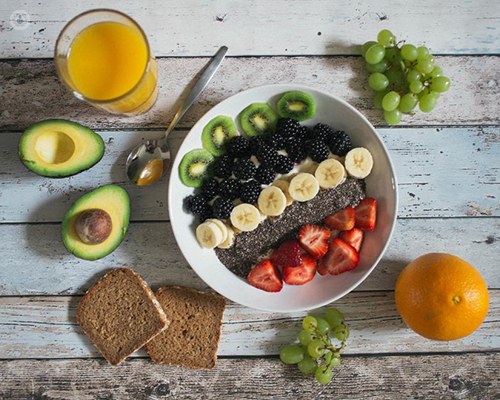Probiotic, prebiotic and symbiotic: what’s the difference?
Autore:We have all heard that probiotics and prebiotics are good for our gut health but have you ever wondered how they really work and why we need them? Together they help to keep the gut bacteria healthy but both have different functions. Leading London gastroenterologist Dr Devinder Bansi explains why the recent wellness trend isn’t just a fad and how probiotics, prebiotics and symbiotics can really benefit our health.

What is a probiotic?
Probiotics are medicines or food that have been fermented or food supplements that contain the so-called good or healthy bacteria. The best known are called lactic acid bacteria (LAB) and bifidobacteria. Probiotics are live bacteria but are not usually harmful and can survive the journey through the stomach without being deactivated by gastric juice. They can be found in foods such as sauerkraut, kefir, pickles and kombucha.
What is a prebiotic?
Prebiotics are foods that the body cannot break down and absorb. They encourage the growth and activity of healthy gut microbes. Common prebiotics includes:
- Oligofructose and inulin (found in foods such as wheat, onion, bananas and leeks)
- Galactooligosaccharides (produced commercially from lactose, a by-product of the dairy industry)
- Lactulose is often used to treat constipation and severe liver disease
- Breast milk oligosaccharides
Most prebiotics are found in food ingredients such as biscuits, cereals and dairy products. They are used to improve the palatability of low-fat foods and to sweeten low-calorie foods.
What is a symbiotic?
A symbiotic is a product that contains both a probiotic and a prebiotic.
How do probiotics and prebiotics improve health?
- They increase the number of healthy organisms in the gut
- They strengthen the barrier in the gut to harmful substances
- They stimulate the immune system in the gut, which might make it more sensitive
- They reduce gut inflammation
- They reduce the number of episodes and severity of diarrhoea
It is estimated that the worldwide probiotic market was worth $35 billion in 2015. With the increase in our understanding of the roles of these bacteria in our day-to-day functioning, it is expected that this number will rapidly increase. In the future, it may be that we revert to individually managing our own microbiota on a personal level to maintain our wellbeing.
READ MORE: the role of gut bacteria in the body


